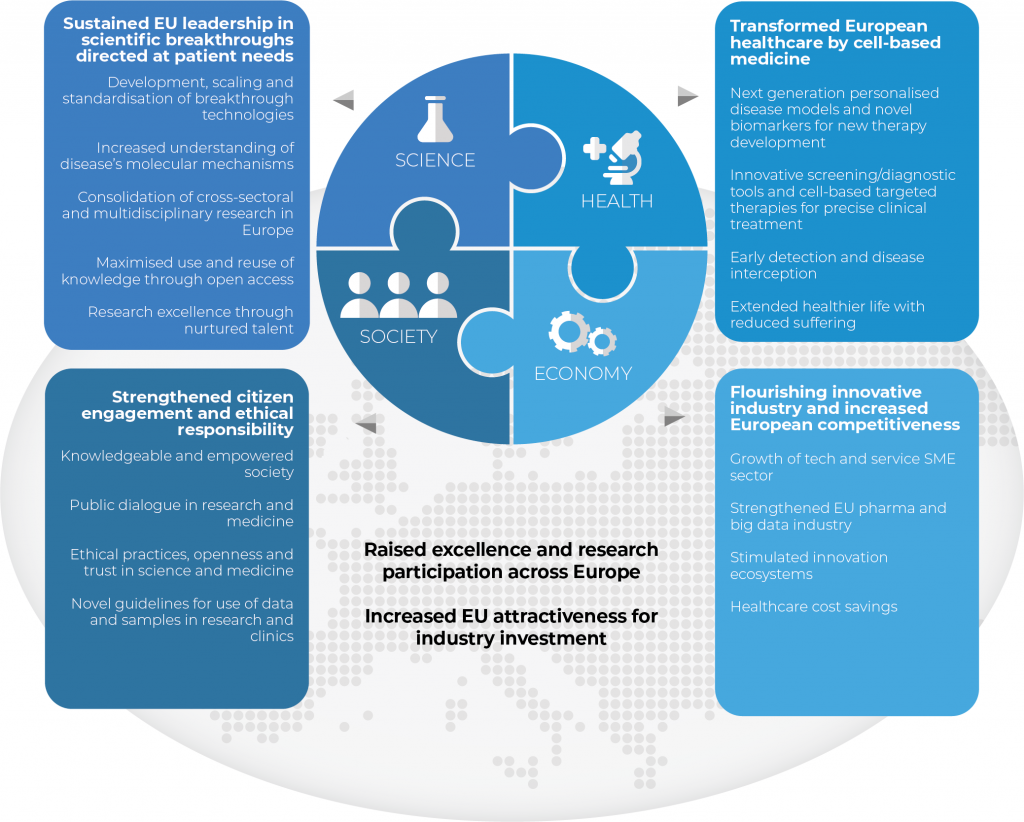Creating sustainable impact for Europe
By generating a wealth of new tools and technologies to measure, analyse and predict cellular and molecular mechanisms during disease onset and progression, LifeTime will profoundly expand our basic understanding of genome function within cells and tissues, having a fundamental impact on basic science across multiple fields. It will lead to a redefinition of the role of artificial intelligence (AI) in precision medicine, which will be based on cellular biology. The synthesis of 21st century biology and data sciences will impact medical practice and improve human health, while reducing suffering of European citizens. New developments in the health sector will provide benefits in terms of business volume, jobs, and personal income for European households. The pharmaceutical industry in Europe will be strengthened by the general acceptance of targeted medicines.
Focus on the potential economic impact
A preliminary study of LifeTime economic impact in Europe
Watch the summary video:
The use of innovative technologies in toxicology studies and improved patient stratification in clinical trials will lead to substantial savings in the cost of drug development. The high-tech industry and emerging AI sector will be boosted by innovations far beyond the state-of-the-art in linking molecular analysis at single-cell resolution to early detection and interception of diseases, thus making Europe a leader in this key driver of future economic growth. European SMEs developing a variety of applications will spin off and flourish. Improved early disease detection and interception will enable healthier aging, leading to substantial savings in healthcare expenses.

Ethics engagement will ensure that the European citizens will benefit from a Science and Technology Roadmap founded on principles of societal responsibility. Open and transparent communication, and citizen empowerment strategies will contribute to a more knowledgeable society and will facilitate public dialogue and uptake of citizens’ assessments in strategic decisions.
LifeTime will have a long-lasting structural effect on the European Research Area by streamlining key European efforts. It will create a coordinated anchor point in Europe for international cooperation, and it will generate and nurture talent by training a new generation of researchers. Together this will ensure a leading position for Europe. Access to and training in the LifeTime technologies will help reduce differences between Europe’s regions, thereby raising scientific excellence across the board and stimulating investment in new innovative infrastructure.